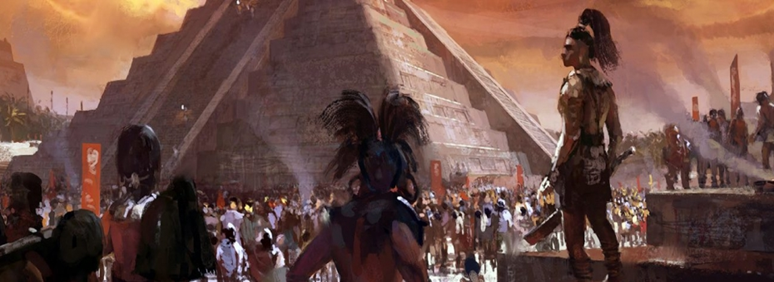Fasting in civilizations and religions.. The Mayans fasted for two months, an essential ritual for the inauguration of the ruler

Muslims around the world celebrate the advent of the blessed month of Ramadan, as the holy month witnesses the performance of the obligation of fasting , which is one of the five pillars of Islam. However, fasting is not a special Islamic ritual. Humans have known it since the beginning of creation, and many different civilizations and cultures have known it. It is also an obligation for all... The Abrahamic religions, and some ancient civilizations, including the Maya, also knew it.
Humans have known fasting since the beginning of creation, and some ancient peoples have also known it, including the Mayan civilization in Latin America, where the duration of fasting was two months. Fasting was known to the Aztecs and Incas as well, and it was known to the Indians and China.

The traditional Maya faith in Guatemala, Belize, western Honduras, and the Tabasco, Chiapas, and Yucatán regions of Mexico is a southeastern offshoot of a similar faith in Mesoamerica. As with many other religions in contemporary Mesoamerica, Maya faith has been influenced by centuries of coexistence with Roman Catholicism.
The Mayan accession ritual required the new king to perform bloodletting rituals and offer human sacrifices to appease the gods. The process of bloodletting is carried out only by the new king, while the priests perform the sacrifice, and the rituals of assuming power are held in the middle of a crowd of people and on the tops of platforms or pyramids.

The Keshite king regularly visited temples with dignitaries to burn offerings and pray for the prosperity of his people. He also practiced fasting and abstinence from sex. As for the kings of the classical era, the king would sometimes appear distributing blood, incense, or perhaps corn. Other times, the king would personally shed his blood and offer it as an offering in front of some sacred trees.
Source : websites

